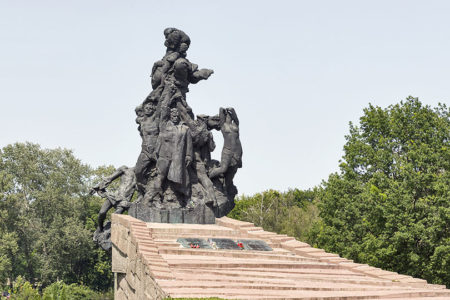Mainline or Out of Bounds
Leaders of the National Council of Churches U.S.A. (NCC) are fond of reminding us of its size and influence. In fact, a Web site reviewing the organization’s newest yearbook called the NCC “the ecumenical voice of America’s Orthodox, Protestant, Anglican, historic African American and traditional peace churches,” boasting “35 communions with 45 million faithful members in 100,000 congregations in all 50 states.”
Impressive indeed. However, in reality, the NCC and its alter ego, the World Council of Churches, is a polyglot of religious organizations that defy the traditions and norms of the Christian faith. In their zeal to identify with radical influences, they often run afoul of conservative, evangelical Christians whose views they tag as the scourge of liberal progress and whose methods and ideology they equate with the likes of the Taliban and al-Qaida.
For all of its self-presumption, the NCC can hardly be justified in its claim to be the religious voice of American Christianity. In fact, for many decades it has been viewed as out of bounds and inconsequential to society’s survival and to the rational conduct of national and international affairs.
A case currently before us makes the point. When Iranian despot Mahmoud Ahmadinejad came to our shores in September 2007, his visit caused a firestorm of protest from the halls of Congress to the streets of America. Our guest was the same man who almost daily flaunts his intention to wipe Israel off the face of the earth and then bring down the West. He denies the Holocaust, asks our president to convert to Islam, calls Zionists the most detested people in all of humanity, subverts governments, arms and trains jihadists, and declares his intent to possess nuclear weapons.
Despite his track record and rap sheet, an “interfaith delegation” made up of more than 100 liberal religious representatives, including Catholics, United Methodists, Presbyterians, Episcopalians, and Unitarians, sat down with Ahmadinejad for an hour-long chat. The purpose of the powwow reportedly was to stress the need for diplomacy to prevent war. After hearing the man of the hour attempt to tell them what they wanted to hear, one delegate left the meeting “hopeful because of the statements Ahmadinejad made about the ‘renunciation of war in the quest for peace.’”
The New York meeting was a follow-up to two other meetings by interfaith ecumenical groups. The first was in New York in September 2006; the second, in Tehran in February 2007. The Tehran meeting demonstrated painfully who is influencing whom. The “Christian leaders” came away oozing kind words for the man who represents the antithesis of peace and tranquility.
The NCC’s associate general secretary for interfaith relations, Rev. Dr. Shanta Premawardhana, was impressed. He praised Ahmadinejad as a pious and witty man. “Ahmadinejad,” he said, “comes across as a very religious man.” J. Daryl Byler, director of the Mennonite Central Committee Washington Office, referred to Iran’s president as speaking in measured tones, seeming reasonable, and having a witty personality.
So taken was Mr. Byler with Ahmadinejad that even before the February trip, he wrote to President Bush saying he wished the president would meet with his Iranian counterpart, whom he described as “bright and engaging.” And, he wrote, “Like you, Ahmadinejad is a religious man. I believe you would enjoy one another’s company. Your conversation could signal a positive change in a relationship severed more than 25 years ago.”
It is remarkable that Byler implied an equivalency between conservative Christianity and radical, Iranian-style Islam.
Four days after meeting with the NCC delegation, where he exuded good-will to all and a hunger for peace, Ahmadinejad reportedly told an audience in the Sudan, “Zionists are the true manifestation of Satan.”
Malcolm I. Hoenlein, executive vice chairman of the Conference of Presidents of Major Jewish Organizations, said it best when speaking of the religious leaders’ mission to Tehran: “They’re not going to convince him. Their very presence there gives him respectability.” How true.
The persistent imposition of moral equivalence on the Palestinians and Israelis who are attempting to negotiate a settlement is, at the very least, an encouragement to continued aggression by those who aspire to destroy the State of Israel. It can be viewed as the diplomatic equivalent of our American-style, no-fault insurance that does not blame either party when vehicles collide. In military terms, it pulls back forces just short of final and complete victory in order to save some dignity for the bad guys who started the fight in the first place. In this scenario, no one loses face; and, as is often the case, both sides can claim victory.
In reality, imposed equivalence is a disservice to both sides. While terrorists continue to pound Israel with rockets, roadside shootings, and accusatory media blitzes, Israelis are defending their right to survive. Comparisons that cast the Jewish state as the perpetual aggressor with no legal, moral, or historical right to exist not only fuel the conflict but assure Israel’s attackers of international justification to keep up the fight.
In the end, the primary victims will be the core of decent Palestinians who only want normal lives for themselves and their children. Cheering on jihadists and the likes of Mahmoud Ahmadinejad sends the worst possible message and exposes leftist religionists for what they truly are.







